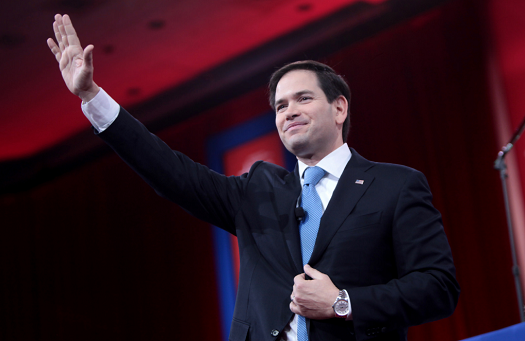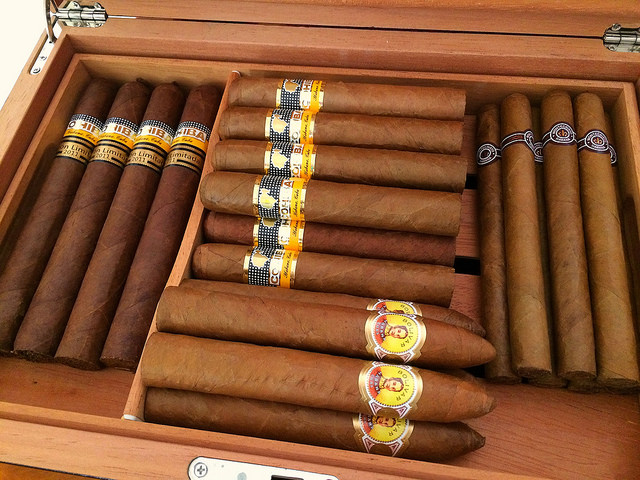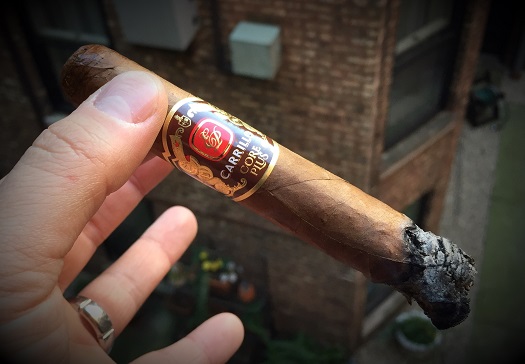
On Friday, the Obama administration lifted restrictions barring Americans traveling abroad from bringing back Cuban cigars and rum—another step towards further normalizing relations between Washington and Havana.
Since December 2014, American citizens who were officially licensed to visit Cuba (for reasons including religion, journalism, education, visiting family, etc.) were granted the ability to bring back $100 worth of Cuban cigars and/or Cuban rum into the U.S., as part of a $400 total import allowance. This change—which coincided with a prisoner exchange that was brokered with Cuban President Raúl Castro—was a shift from the previous policy, which didn’t allow any Cuban cigars, or other Cuban goods for that matter, to be imported.
Now, travelers to Europe, Canada, Mexico, or other places where Cuban cigars are legally sold (including Cuba) can legally import Cuban cigars and rum without limitation, as long as the importation is for personal consumption only.
While this is a rather significant shift in policy, it’s important to remember the longstanding Cuban embargo is still in effect. Obama can’t reverse the embargo in its entirety; that would take an act of Congress. So don’t expect to suddenly find Cuban smokes at your local tobacconist, or a way to order them online from U.S. sellers. (Whether or not cigars can now be legally purchased by consumers from online retailers in other countries is not clear.)
Still, this is a major win for cigar enthusiasts who enjoy Cuban cigars and regularly travel abroad. It’s also a step in the right direction. The Cuban embargo has been a massive failure when you consider the objective was (and still is?) to cripple the Castro regime. The island’s totalitarian communist regime has been unbelievably stable for decades, and its economic policies have only recently begun to take small steps towards liberalization. Furthermore, America hypocritically has no qualms trading with many other countries that regularly suppress human rights and political freedoms.
So while it’s appropriate for cigar enthusiasts to cautiously applaud Friday’s announcement, our adulation for the administration should be, at best, very tempered. Recall that, thanks to President Obama and the anti-tobacco policymakers he relies upon to craft and carry out policy, cigars commercially solid in the U.S. at retail shops and online are subject to highly draconian regulations—regulations that will force businesses to close and eliminate an estimated 30,000 jobs in the U.S. and 300,000 jobs abroad.
Setting aside the ban on samples, new warning labels, and the ridiculously arbitrary nature of the February 15, 2007 cutoff date, the lack of clarity about the FDA approval process is the biggest reason why industry experts predict the rule will devastate the industry. What will qualify as “substantially equivalent� How will the FDA build and maintain the capacity to process approval applications in a timely manner? How will small, family-owned boutique cigar operations pay the outrageously high costs needed to successfully gain FDA approval (estimates for the cost of obtaining FDA permission to sell a cigar vary widely from $20,000 to $100,000 or more for each size and each packaging option within each blend)?
One can see how the elimination of restrictions on importing Cuban cigars for personal consumption—which are not subject to FDA regulations, by the way—coupled with outlandish FDA rules on all other cigars could jeopardize U.S. retailers and manufacturers of non-Cuban cigars in places like Nicaragua, Miami, Honduras, and the Dominican Republic. What’s the message here? Commercial cigar sales in the U.S. have to abide ungodly stringent rules, while Cubans get to flow more freely? Is it not hard to envision a future state where Cuban cigars are exchanged on the black market once they have been legally imported? Won’t these cigar sales cut into the profits of non-Cuban manufacturers and retailers who must comply with the terrible new rules?
Whether or not this was Obama’s intention makes no matter. Good intentions do not always result in good outcomes, especially in matters of public policy. So while we aficionados tip our hats to Friday’s announcement, let’s remember the cigar industry is entering extremely perilous waters thanks to a reckless course set by Obama and misguided, misinformed members of Congress who agreed to grant FDA oversight over premium handmade cigars.
It should go without saying that Obama is no friend of cigars. But you certainly wouldn’t know that from reading the outpouring of support on social media, or the laughably off-target “reporting” from the mainstream media.
–Patrick A
photo credit:Â Flickr








 Patrick Ashby
Co-Founder & Editor in Chief
Patrick Ashby
Co-Founder & Editor in Chief Patrick Semmens
Co-Founder & Publisher
Patrick Semmens
Co-Founder & Publisher George Edmonson
Tampa Bureau Chief
George Edmonson
Tampa Bureau Chief